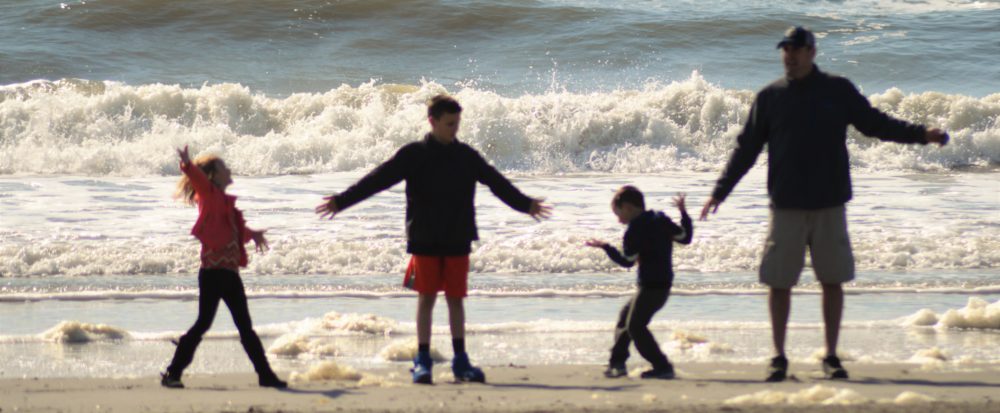299.00 Autistic Disorder
“The essential features of Autistic Disorder are the presence of markedly abnormal or impaired development in social interaction and communication and a markedly restricted repertoire of activity and interests….
The impairment in reciprocal social interaction is gross and sustained…
In most cases, there is an associated diagnosis of Mental Retardation, commonly in the moderate range (IQ 35-50). Approximately 75% of children function at the retarded level……”
In 2002 I graduated with my Master’s Degree in Clinical Psychology. To obtain this degree I had to study this book, from cover to cover.

The Diagnostic and Statistical Manual of Mental Disorders is a clinician’s bible. With my master’s degree I worked as a crisis responder, specially trained to respond to schools in crisis. If I was not at a school in crisis, I was crisis counseling the county by phone or by mobile outreach.
As a crisis responder, you do not know the person you are dealing with. It was my job to go into a situation, determine how to help the individual by listening and asking the right questions to quickly and properly diagnose – based on my knowledge of the DSM. I primarily worked with adults suffering from mood disorders, psychotic disorders, or substance related disorders.
The definition of Autistic Disorder from the DSM-IV (1994) is above.
In the DSM-IV, there was not an autism spectrum. There was a series of Pervasive Developmental Disorders. And 299.00 Autistic Disorder was reserved for just a few.
The Best Advice
Recently I met another mom whose son is on the spectrum. As we shared our stories, she told me:
“The best advice I ever got was from my son’s speech therapist when he was diagnosed,” She said, “take everything you know about autism and throw it out the window. The autism spectrum covers so much more now. EVERY PERSON is different, so don’t trust what you read on the internet. It’s irrelevant. Just focus on your son.”
I nodded as I heard this woman make this statement. She was right.
It was in 2013 that DSM was updated to DSM-V. In that edition of the DSM, 299.00 Autism Spectrum Disorder was added.
Here is how it reads now:
Autism Spectrum Disorder 299.00
- Persistent deficits in social communication and social interaction across multiple contexts, as manifested by the following, currently or by history (examples provided)
- Restricted, repetitive patterns of behavior, interests, or activities, as manifested by at least two of the following, currently or by history (examples provided).
I left the field of Mental Health in 2008 to pursue another line of work. I had no idea about the autism spectrum. When Declan was diagnosed with autism, I grieved. I was also, unaware.
Not everyone who gets an Autism Spectrum Diagnosis grieves. If I were to go back now and sit in that room again and go through Declan’s evaluation results and receive his autism diagnosis, I would be relieved. Because I was in a room with clinician’s who were aware. And they provided us help.
So, to the newly diagnosed, or to the non-autism professional that has been working in the field for a long time – I would use the words I recently heard:
“Take everything you know about autism and throw it out the window. The autism spectrum covers so much more now.”
In my journey’s I came across this video explaining the autism spectrum and it’s creation. Check it out if you get a chance!
https://upload.wikimedia.org/wikipedia/commons/9/94/Autism_spectrum_disorder_video.webm


Every day you never know what to expect.
I agree with that!
We we’re definitely relieved! We knew Ben was autistic by the time he was 18months old. Getting his diagnosis took forever. Then trying to get support, which we never got except what he gets at school. Then trying to find a pediatric psychiatrist for meds….
I definitely agree with your advice! I would add “get ready to roll up your sleeves and fight/advocate for your child” 💪💖
You are right – that is definitely a good one to add! And that is exactly what you had to do for Ben. So tough! And then I always think “What if?” What if we didn’t have our kids evaluated and diagnosed? And they struggled without support. Eventually the schools would be involved, but I feel like the work we did through the preschool and the preschool years has made SUCH a difference. !
Thank you for writing this. Very good advice!
Thank you!
That’s really great advice
That is the advice I wish I was given, so I could pass it to my family when my son was diagnosed. When he was diagnosed I was relieved because we just didn’t know what we were doing wrong. Another piece of advice I like to give to others who are just hearing this diagnosis, or any mental disability diagnosis, take each day moment by moment. There is a phrase “take it day by day”, but that just doesn’t work for special needs parents. In any given day there could be a thousand great moments but the few bad moments could ruin that whole day. So focus on the moments so you see all the good too.
Wow, you are right – that is a good one. One statement that rings true that I have heard, “You might be an autism parent if you are hit and hugged within 5 minutes of each other.” There are a lof of great moments – I agree – that is great advice to focus on the good moments.
That’s really the same with any chronic disease, disorder, or illness, isn’t it?
Maybe – I don’t really know.